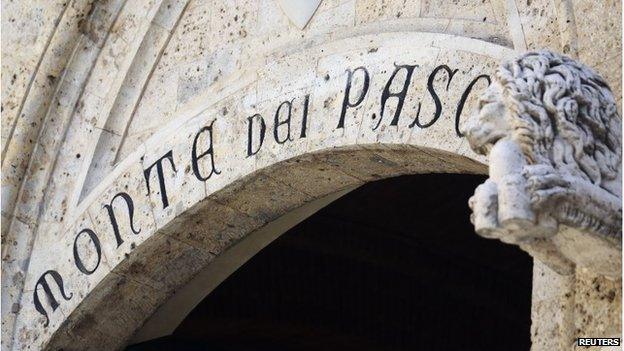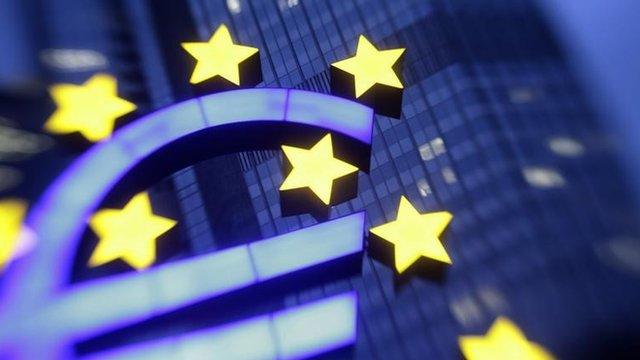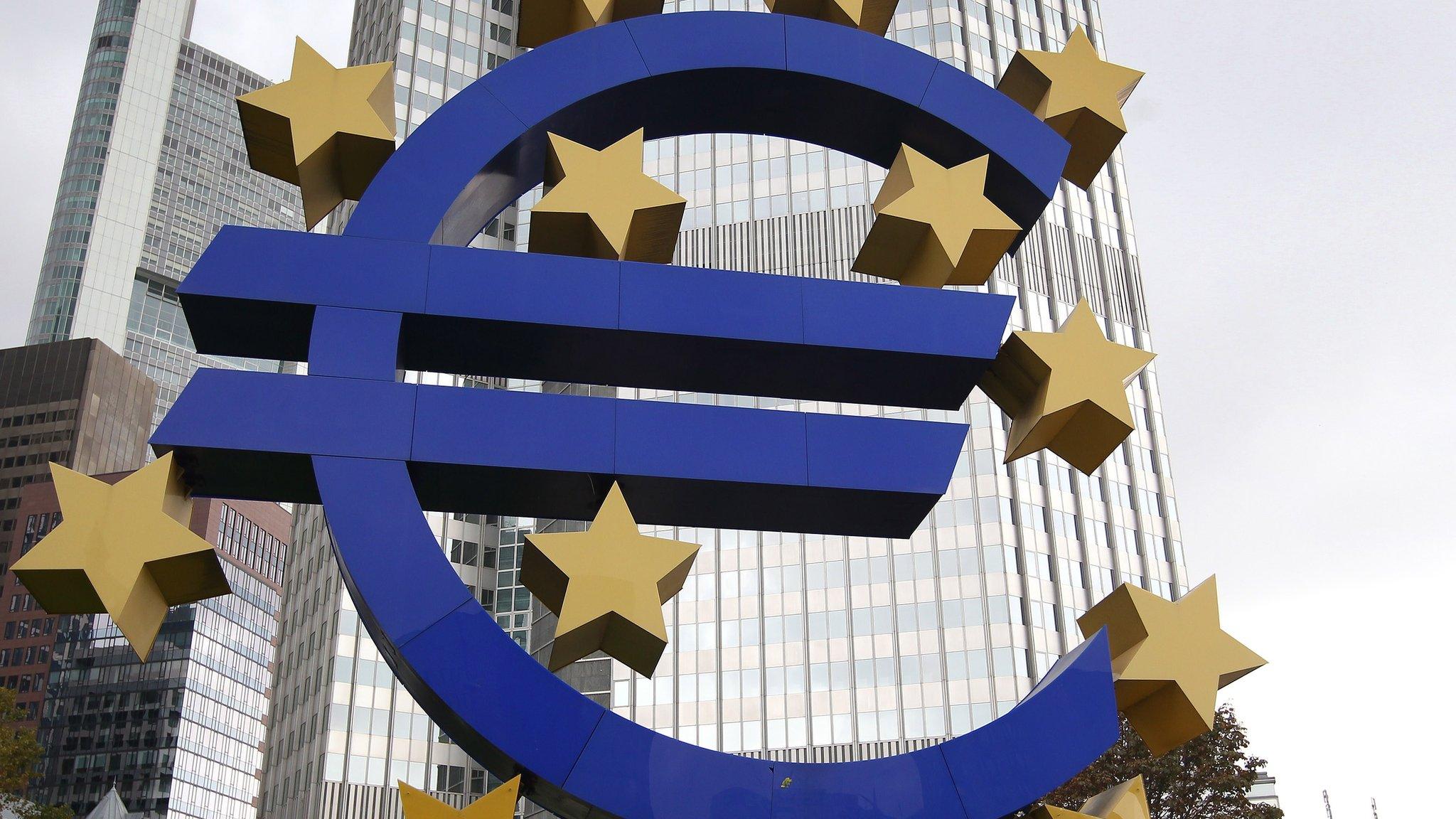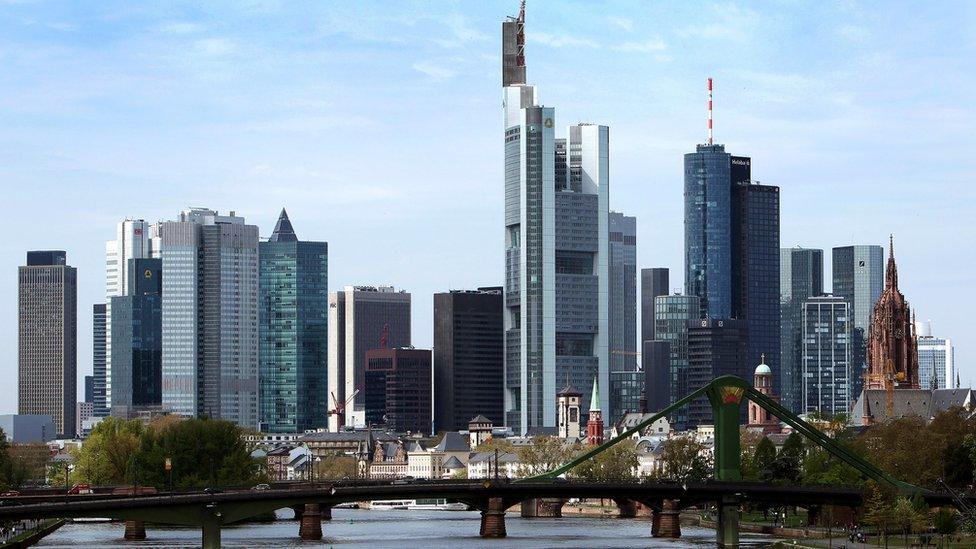Italy's Monte dei Paschi shares suspended twice after 'stress tests'
- Published

Trading in shares of Italy's Monte dei Paschi bank was suspended twice on Monday because of heavy losses.
Monte dei Paschi's shares eventually closed 21.5% lower after it emerged as the worst performer in official stress tests.
In all, 24 of 123 banks failed the European Banking Authority (EBA) tests, designed to find out if they could withstand another financial crisis.
Share prices in most EU banks fell following publication of the results.
Lloyds Banking Group shares closed down 1.8% after it narrowly passed the tests.
All UK bank shares - Barclays, RBS, HSBC, Standard Chartered and new joiner TSB - also closed lower.
Monte dei Paschi bank was founded in 1472 for the purpose of granting loans to "poor or miserable or needy persons".
A handful of the strongest banks saw their shares rise, including Austria's Erste Bank and Germany's Commerzbank.
Financial health
The health check, external by the EBA was based on the banks' financial health at the end of 2013.
No UK banks failed the EBA tests. Of the 24 banks that did fail, 10 of them have taken measures to bolster their balance sheets in the meantime.
There are 14 banks that still need to raise more capital. Four are Italian, two Greek, two Belgian and two more Slovenian.
Also on Sunday, the European Central Bank (ECB) carried out an overlapping survey of 130 eurozone banks.
The ECB said 25 banks had failed its test, but 12 of those had already taken remedial action.
The ECB's total is higher than the EBA's because of Spain's Liberbank, which passed the stress test but failed the ECB's Asset Quality Review.

Analysis: Robert Peston, Economics editor, BBC News
Certainly this was a much more realistic evaluation than previous exercises.
But, again, that is not the whole story.
If this exercise to rehabilitate banks had been carried out two years ago, the impact on the recovery of the eurozone might well have been quite powerful.
But today the eurozone's weakness is as much about the demand for credit as the supply
It is all very well putting banks in a position to lend, but if households and businesses are reluctant to borrow, because their confidence in the future of the eurozone is shattered, then - like the proverbial gee-gee led to water - they won't drink (or borrow).

- Published27 October 2014
- Published26 October 2014

- Published27 October 2014

- Published26 October 2014

- Published17 December 2013
